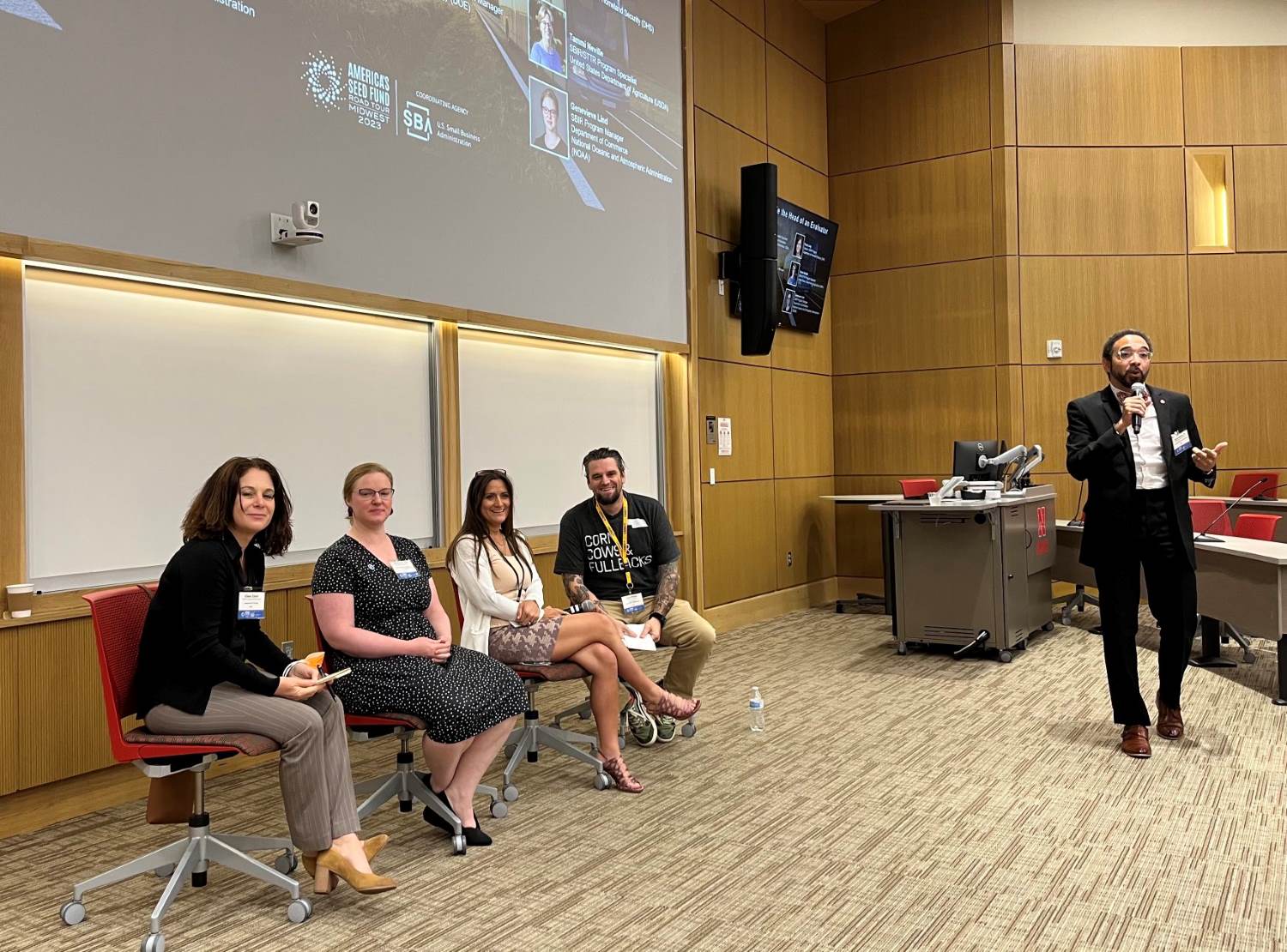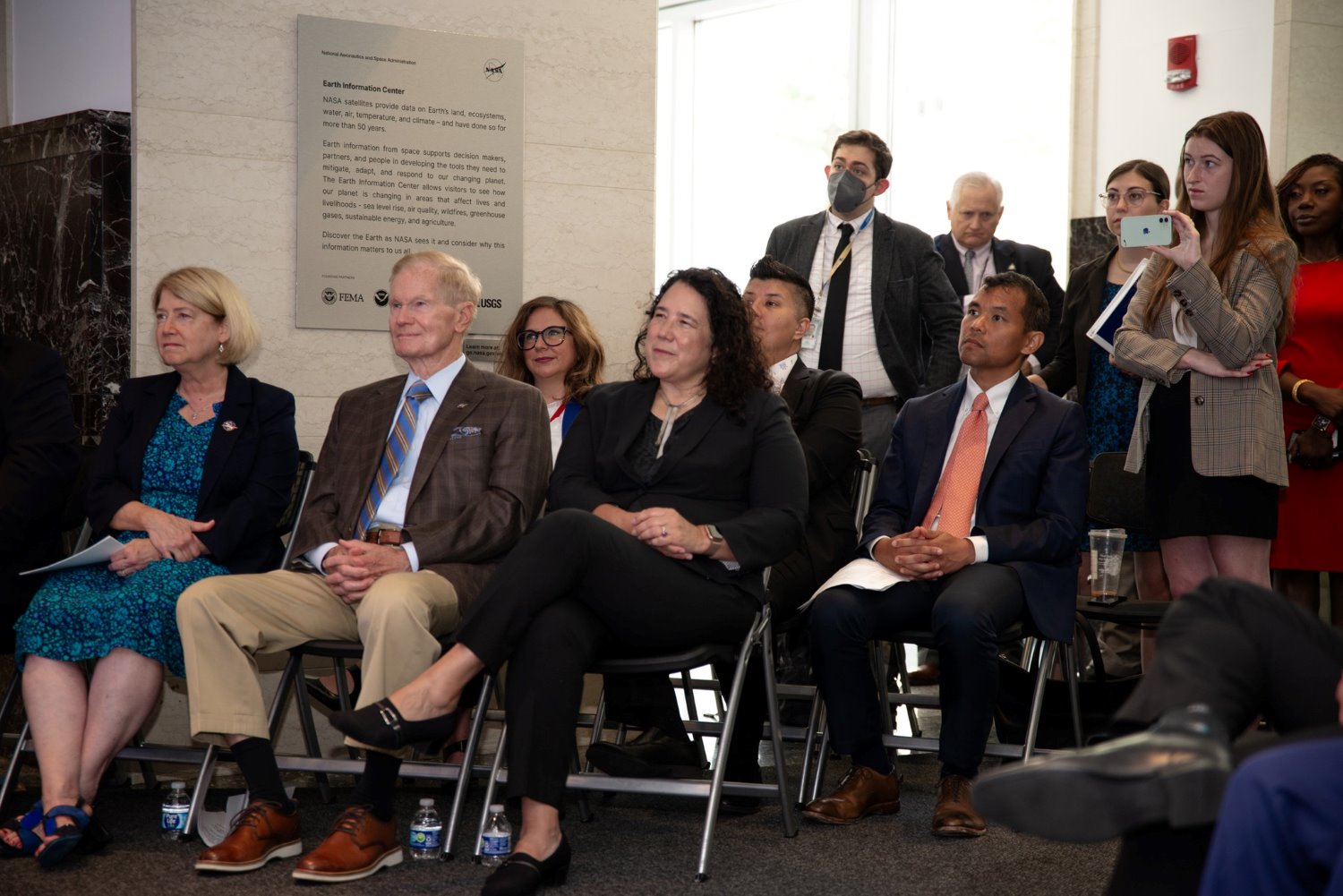Taste This Cup of Wisdom from Shirley Collier to Grow Your Small Business
Government contracting may be a profitable industry, which makes it potentially quite competitive. Your business must continually provide top-notch services while also looking for methods to boost productivity and profitability to expand. But for some newcomers, this is a tough road since they didn’t have much experience in the space.
To counter this roadblock, it takes an array of knowledge that you might find the key from a good mentor. All over the internet, we see a bunch of courses for growing your business pooping up without knowing if they actually help.
Fortunately, we have Shirley Collier, the President of Scale2Market, which was established in 2012 with a mission to connect the dots between the federal market’s need for inventive and efficient solutions to national priorities and forward-thinking businesses. She has conducted a set of powerful insights for small businesses to growth. Let’s get to the first one.
Startup Phase – Key Steps to Envolve to a Solution Provider
Shirley stated that, “the startup phase needs to concentrate on, especially if it’s just them. When you’re in the startup phase, you don’t know what you don’t know, so that’s what’s most important.”
She added, “In fact, I tell my clients the second hardest thing that you’ll ever do is to start and grow a small business, but the number one hardest thing that you’ll ever do is to start and grow a small business in the federal sector.”
During the startup phase, perhaps the most crucial step is gaining a deep understanding of how the federal government handles procurement, and although it may not sound particularly exciting, comprehending the Federal Acquisition Regulation (FAR) is paramount.
Fortunately, there are valuable free resources available, such as Procurement Technical Assistance Centers (PTACs) and Small Business Development Centers (SBDCs), where numerous individuals are eager to assist you in comprehending the intricacies of federal procurement. The reason for this willingness to help lies in the highly regulated nature of government procurement, making it essential to understand the rules and regulations to avoid any inadvertent violations.
It’s also vital to cultivate relationships in this stage. Sometimes, small businesses find their foothold because they’ve previously worked for a larger government contractor, engaging in business activities as an employee for a federal agency. These pre-established relationships can be instrumental in getting your startup off the ground.
“You definitely want to, when you’re in that environment, let’s say you’re working for a larger company, you want to develop as many relationships as you possibly can with contractors, with your competitors, with the program managers, your peers, and the small business office. Because those relationships need to be leveraged when you first get started,” said Shirley Collier.

Another important consideration in the startup phase that Shirley highlights is building all the necessary building blocks upon which your company will grow. If you qualify for a socioeconomic certification, you definitely want to pursue that opportunity.
Another key is to establish a good cost accounting system; this doesn’t necessarily require a substantial financial investment, as QuickBooks, for instance, offers reliable job costing capabilities that are suitable for startups.
Business owners, you need to understand how to recruit effectively because sometimes your initial contracts may involve providing personnel (butts in seats).
Having elaborated more on this term, Shirley mentioned that it’s basically a staffing requirement. So, a federal agency needs a particular person to perform a particular job, posting that job as a federal job and hiring, and so forth, is extraordinarily complex and time-consuming.
So many federal agencies will just contract out that position. But a “butts and seats” contract means that the individual gets their direction from someone in the government, although they’re employed through your company. The work that they do and the oversight that they receive is really coming from the federal agency.
This is a common way to get your foot in the door at a government agency, so having the skills to recruit effectively is essential during the startup phase.
Miss Shirley Collier advises that while some companies may discourage offering staffing services in federal government contracting, it’s important to start smartly. Even large firms like Booz Allen engage in staffing to some extent.
By listening to clients, learning, and observing the landscape, small government contractors can initially provide staffing and later evolve into comprehensive solution providers, offering more value to federal agencies as they grow and adapt to emerging opportunities.
“The government really consists of people and technology; you know, that’s like 99% of the government. And there’s a huge demand for skilled people, and anyone who has recruiting capabilities and can supply those people in a timely manner at a reasonable rate can build a very nice, profitable business,” said Shirley Collier.
After Building the Base – Now It’s Time to Pivot
As expressed by Shirly, The founder has grown the business as far as he or she can, and now it’s time to pivot. You pivot your strategy, your staff, your focus, your market focus, the products and services that you provide, your proprietary methods and approaches – all pivot during this stage. Your organizational structure pivots during this stage many times.”
She added, “The outsourced services that you took advantage of when you were smaller, it’s time to bring those in-house: accounting, recruiting, HR, business development. This is also the time when founders will begin developing an executive team and delegating authority, and that is so hard. It’s hard for any entrepreneur but especially hard when you’re in a very complex, regulated environment like the federal government.”
Miss Shirley Collier stresses the critical importance of small businesses in the federal government contracting space transitioning from the small business set-aside program to competing in the full and open market.
This transition is essential for these businesses to create market value and attract potential investors or buyers in the future. For entrepreneurs looking to cash out or exit their businesses, this shift marks a pivotal moment in the company’s growth.
Even if the exit is several years away, typically between five to ten years, it’s imperative to start implementing changes and strategies during the 5 to 25 million revenue range to position the company for a successful future transition.
In this transition, business owners often need to introduce greater discipline into their business development practices. In the early stages, founders might have relied on personal relationships and a somewhat organic approach to secure contracts.
However, as the business grows, founders become busier with day-to-day operations. Therefore, it becomes imperative to adopt a more structured and disciplined approach to identifying, qualifying, and pursuing opportunities, including responding to requests for proposals (RFPs) and requests for information (RFIs). This shift is essential for sustained growth and success in the federal market.
Miss Shirley Collier provides an inspiring example of a business she helped grow. She worked with a client that initially operated as a $5 million 8A firm offering a wide range of IT services, including network administration, application development, web design, and help desk support. The client’s ambitious goal was to double in size in just three years, aiming to reach $10 million in revenue.
Upon closer examination of their contracts and core competencies, Miss Shirley discovered a standout capability: the client had a team of data scientists working on an artificial intelligence project focused on fraud detection. This project had been highly successful, winning a recompete, and it became evident that there was substantial demand for their expertise in artificial intelligence and machine learning.
With this insight, Miss Shirley helped the client develop a two-year growth plan, identifying specific agencies, opportunities, contract vehicles, and teaming partners to pursue in the artificial intelligence fraud detection sector. The results were remarkable, as the client not only achieved their initial $10 million goal but exceeded it, reaching $20 million in revenue within 18 months.
Every Stage Matters – Good Habits Will Help Firms Go Through
According to Shirley Collier, the most challenging aspect of entrepreneurship and business growth varies depending on the stage you’re in.
In the beginning, starting a business can be tough because there are many uncertainties and challenges. As your business grows, there are always changes and uncertainties, making it feel challenging too. Also, when you move from small business set-asides to competing in the larger market, it can be intimidating.
Shirley Collier wants entrepreneurs and business leaders to know that these challenges are normal and expected. She believes that there are many ways to succeed by following industry best practices and learning from others.
She was also vocal about the importance of purposeful thinking and how thoughts lead to words, words to actions, actions to habits, and ultimately, habits shape a company’s culture and success.

“We start with your thinking, and then how do you articulate your thinking? How do you integrate that into behaviors into actions in your company? And then you want your company to have and practice good habits. Those habits are different at different stages of growth, but that is our objective – knowing that you, as the founder and CEO, you’re not alone in your journey. There are others that are going through the same thing currently and have gone through the same thing, and let’s leverage that whole body of knowledge,” said Shirley Collier.
Get a Good Strategy that Evolves Overtime
A lot of small businesses don’t understand strategy, or they think it’s only something that big companies do, but it’s so critical really at every stage of growth. In its simplest form, strategy is about where to play – meaning which agencies, contract vehicles, opportunities – and how to win, as shared by Shirley Collier.
What is your market positioning – prime or sub? What expertise, which products and services should you provide? What are your differentiators? What do you do better than the competition? So, where to play and how to win.
That’s how she frames these discussions in those two big categories.
Strategy isn’t a one-and-done deal; it’s an ongoing, evolving process, according to Shirley. It’s a bit like surfing the waves of change in the federal government contracting arena. Federal agencies constantly shift their needs and budgets, and new legislation from Congress can shake things up.
Meanwhile, your competition is a moving target, with fresh faces entering the market and industry consolidation happening all the time. Your own competitive edge also transforms as you gain more knowledge, experience, and skills.
Plus, as you fine-tune your methods and adopt cutting-edge technologies, your cost structure changes, making you more competitive. So, it’s absolutely critical to keep a close eye on all these strategic facets on a continuous basis to stay ahead in the ever-changing federal contracting landscape.
Shirley brought on an important insight to add in the way to architect a good strategy. She said, “The most successful companies integrate strategic thinking into the minds of everybody in the company. It becomes a part of your culture, so everybody, if you have people who are doing application development or network services for an agency, you instill in them that we want to do what’s best for our client.”
So, be asking, “How can we do this better?” Be observant, look at what their issues are, their problems are, and bring that back to the office because where there is chaos and uncertainty, there’s opportunity.
Having everybody in the company think about how we can do this better, how can we serve this agency better, what’s going on at this agency, what can we do to help them achieve their mission – bringing all that back to the office for good strategic conversation is what leads to success.
Don’t Jump in this Biggest Mistake – Proposing to Death
One of the biggest mistakes she’s observed small businesses make in the federal space is what she calls “proposing themselves to death.” There’s a saying that goes, “If you’re not proposing, you’re not winning,” but she dislikes that saying because it can lead to excessive spending on proposal development. Responding to Request for Proposals (RFPs) in the federal sector is incredibly costly.
The mistake here is when small businesses see an RFP and immediately think, “This is perfect for us; we can do this.” They often fail to realize how much their competition has already influenced the opportunity over several months or even years.
“Even if they could do the work, they’re not going to be selected by this agency because agencies do not do business with people they don’t know. It’s too risky,” said Shirley Collier.
As a small business, you have to sell yourself, your capabilities, and your ideas to decision-makers in the federal sector. You have to get in front of the right people and convince them that you are competent, reliable, innovative, and that you understand how the federal government procures.

You must demonstrate your ability to manage contracts and projects effectively, ensuring that you’re reliable and can deliver. It’s not just about expressing all of that in a proposal; shaping, as many people have heard, can be done in the federal sector ethically and legally to prepare for upcoming opportunities, according to Shirley.
Vital Corner – Using Data To Inform Decisions
Shirley also recommends using data to make smart decisions, which is a big advantage in the federal sector. When the government spends over $3,500, they usually do market research, and the contract details become public.
Platforms like FPDS (Federal Procurement Data System) offer free data to help you figure out how to buy, understand what federal agencies need, spot contracts that might be available for recompetition, and find contracts in the research phase. This data-driven approach can be a real help in succeeding in the federal market.
Using data in contracting processes helps ensure informed, data-driven decisions that lead to better outcomes, reduced risks, and improved efficiency. It also enhances transparency, compliance, and accountability in both government and private sector contracting.
According to Shirley, It’s essential to inform yourself with data, but also remember to leverage human intelligence and network with others in the industry for valuable insights, particularly in the context of gathering valuable insights from clients.
Engage In Meaningful Conversations – Way to Become a Trusted Adviser
Shirley advises her clients to engage in meaningful conversations with their clients and listen attentively to what they have to say. This involves understanding what’s working for them, what’s not, and what improvements they wish to see in the future.
However, Shirley acknowledges that approaching federal clients with open-ended questions like, “What do you want done differently?” may not yield helpful responses. Instead, she suggests a more empathetic and nuanced approach. This includes being deeply involved with the agency, utilizing their competitive advantage in having access, and empathetically engaging with clients.
Showing genuine interest, making eye contact, asking open-ended questions, and delving into their concerns, including budget constraints and career aspirations, are essential.
By having meaningful discussions and demonstrating a sincere commitment to helping clients solve problems and achieve success, a business can become a trusted advisor. Shirley believes that being a trusted advisor is not only powerful and fulfilling but also highly profitable in the long run.









